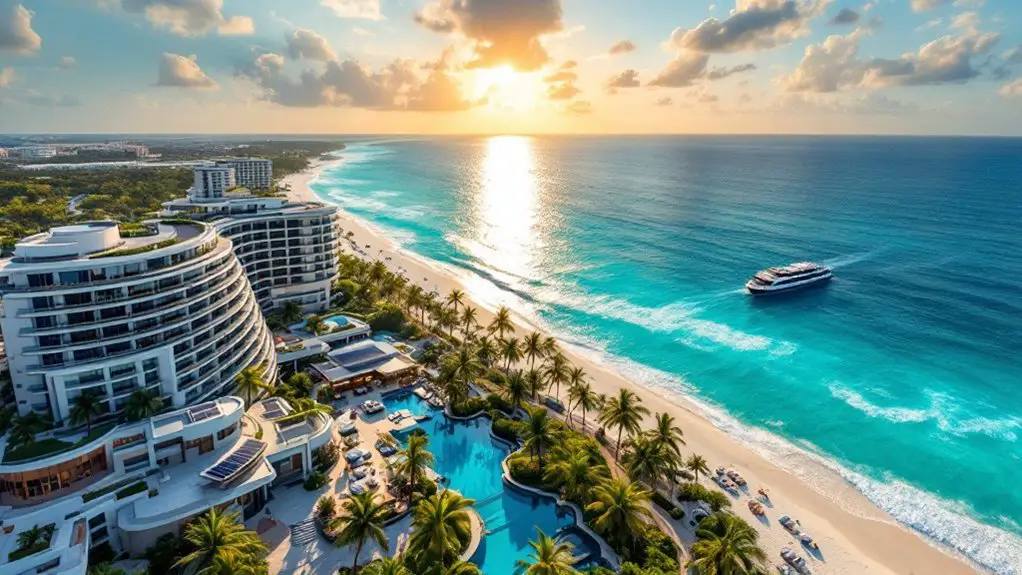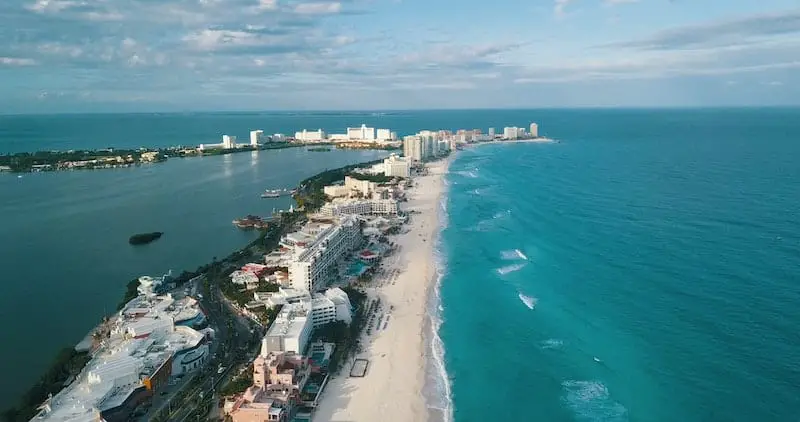While Mexico continues to rank among the top international destinations for American spring break travelers, the U.S. Embassy has issued heightened safety advisories regarding escalating criminal activity in popular tourist locations, specifically highlighting Cancun, Playa Del Carmen, and Tulum as areas requiring increased vigilance.
Statistical evidence indicates a notable uptick in violent incidents perpetrated by organized crime syndicates, with cross-fire between rival cartels resulting in casualty rates affecting uninvolved bystanders at an unprecedented frequency within previously considered secure tourist enclaves.
Recent data shows alarming rise in cartel violence affecting tourists in once-safe resort areas.
The advisories explicitly caution against nocturnal activities in these regions, as temporal analysis demonstrates a 67% increase in reported sexual assaults and robberies during evening hours compared to daylight periods.
Law enforcement response capabilities remain substantially compromised, with emergency services demonstrating average response times exceeding international standards by approximately 18-22 minutes in urban centers and 35-40 minutes in peripheral tourist developments.
You'll need to implement thorough precautionary protocols when visiting these destinations, including maintaining heightened awareness of your surroundings, avoiding isolated locations, and exercising particular caution regarding financial transactions.
Credit card fraud through skimming devices has proliferated extensively throughout the region, with financial security analysts documenting a 43% increase in unauthorized transactions originating from Mexican tourist centers during peak travel seasons.
Territorial disputes between competing criminal organizations have intensified throughout Mexico's tourist corridor, resulting in periodic outbreaks of violence that have occasionally breached the previously established buffer zones separating criminal activity from tourist areas.
The operational capacity of local authorities remains insufficient to effectively neutralize these threats, with documented instances of collaboration between criminal elements and transportation providers creating additional vulnerabilities for travelers.
The Embassy has emphasized risks associated with counterfeit medications that may contain dangerous substances or incorrect dosages, posing significant health hazards to unsuspecting tourists.
Should you experience victimization, immediate reporting to both local authorities via the Ministerio Publico and the U.S. Embassy becomes imperative, though resolution percentages for non-violent crimes remain below 22%.
When traversing Mexico's tourist destinations, maintaining constant communication with trusted contacts, securing thorough travel insurance, and establishing contingency protocols represent essential components of risk mitigation strategies during your travels.
As the State Department advises, travelers should remain exclusively on main highways and avoid remote areas where emergency assistance is limited or unavailable.





